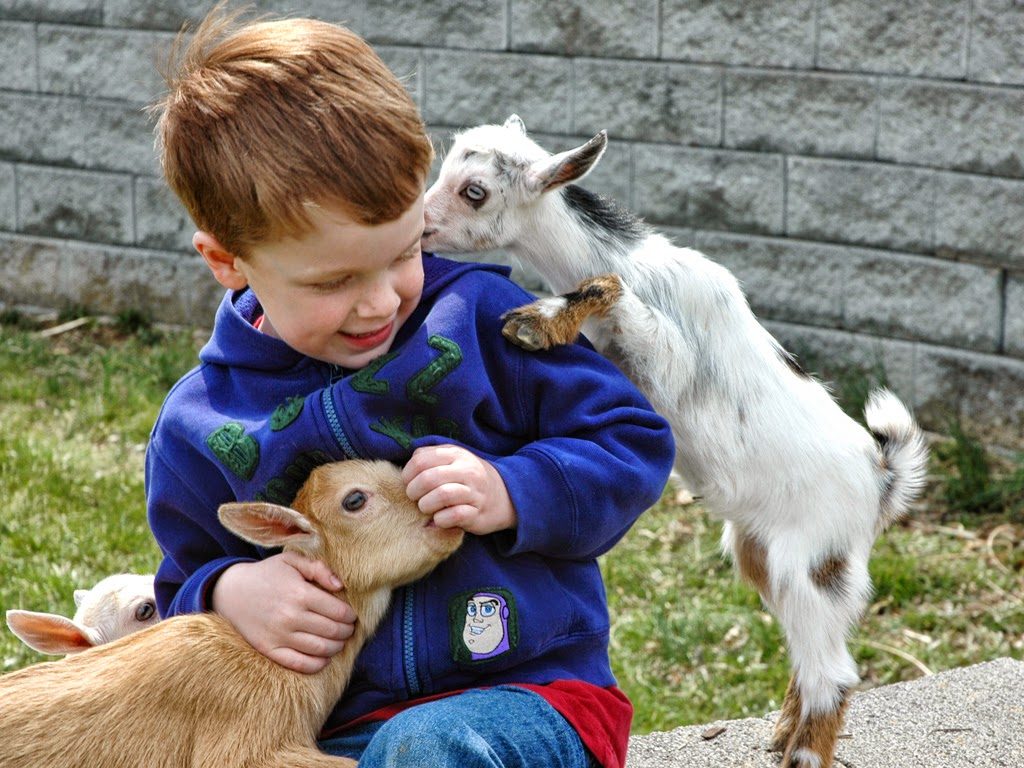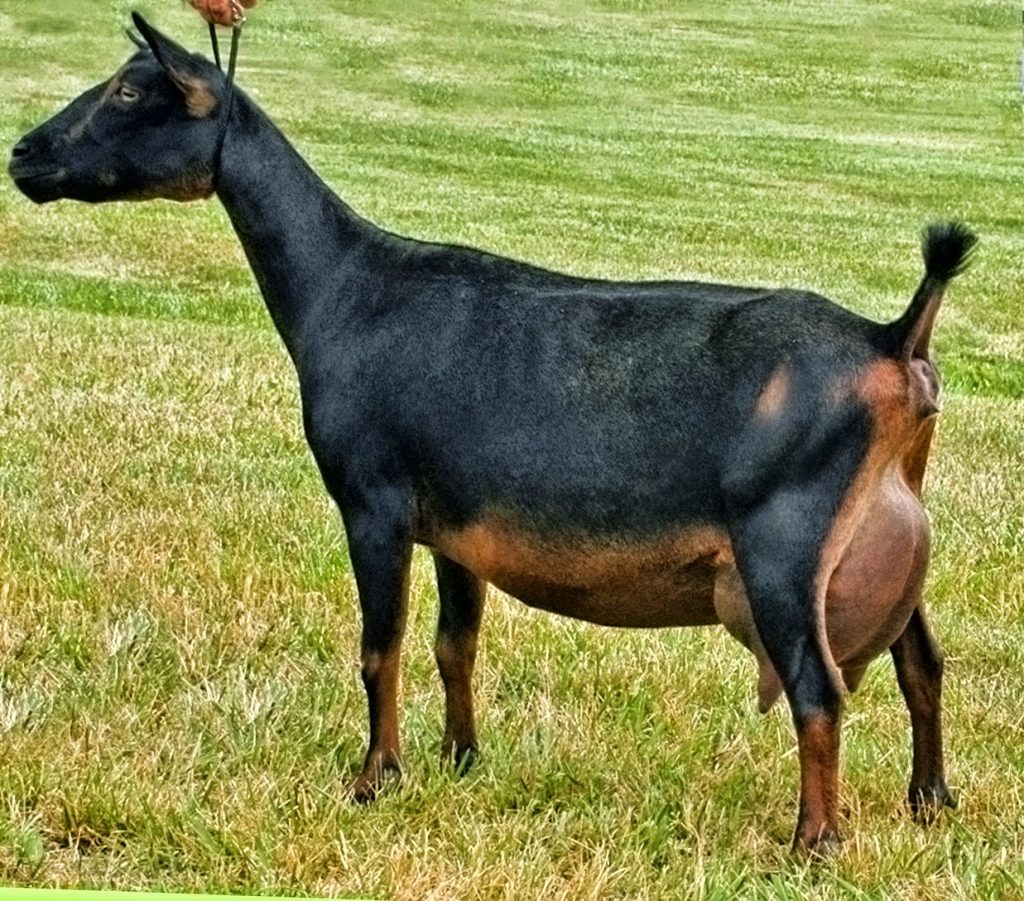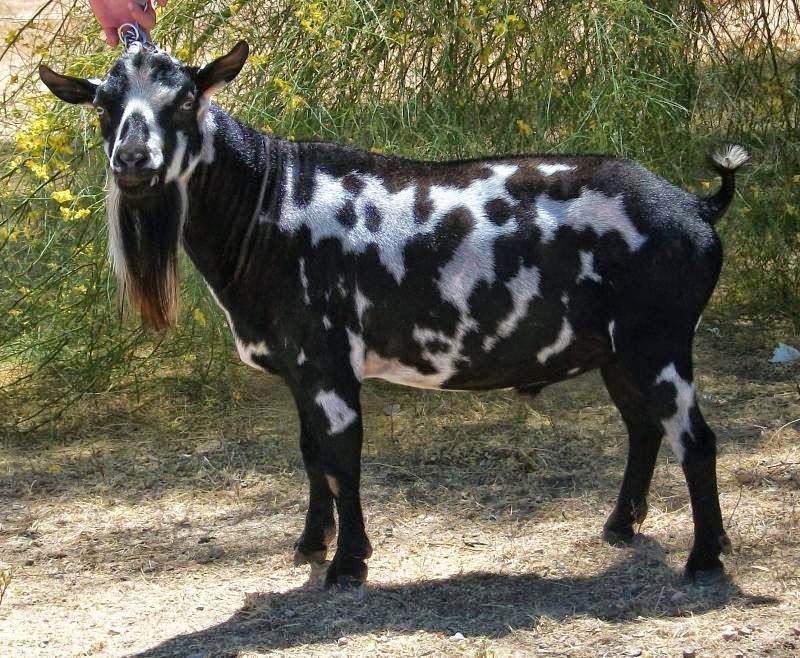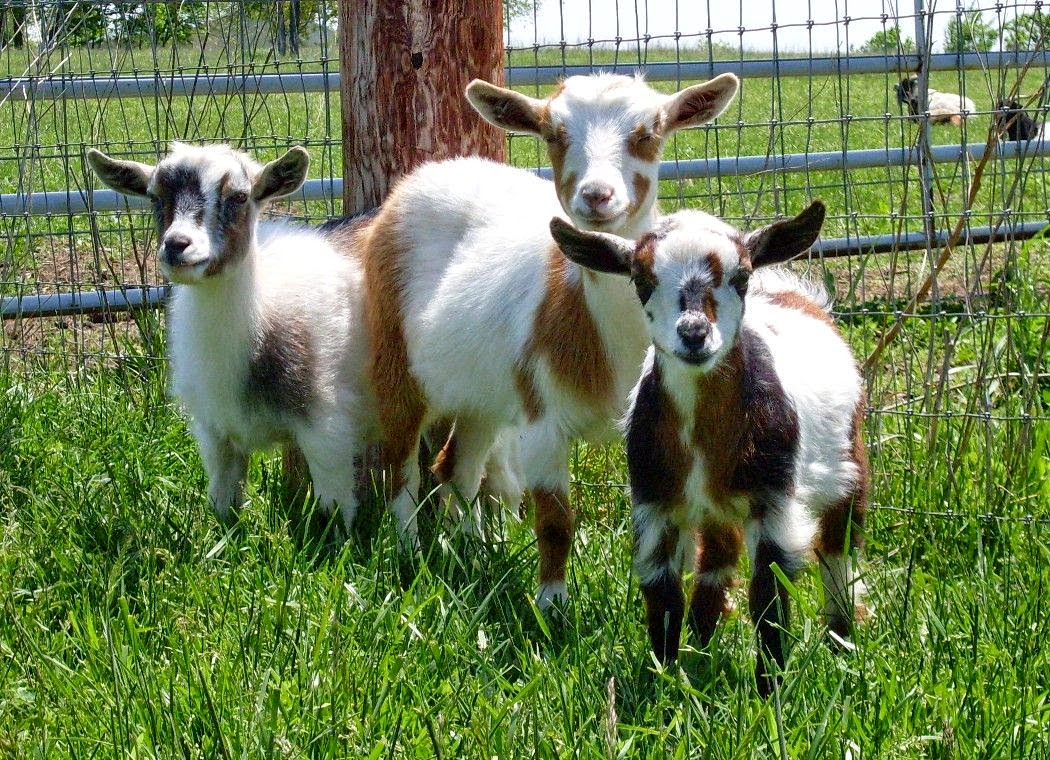One of the most popular goat breeds in the world is the Nigerian Dwarf Goats, accounting for about 12 thousand monthly search on the popular internet search engine, Google. This information is specifically sourced for those searching for the Nigerian dwarf from outside the country. If you are interested in starting goat rearing locally, see How to start Goat Farming in Nigeria.
The Origin of the Nigerian Dwarf Goats
Relatively smaller in size, the Nigerian Dwarf Dairy goat is excellent in milk production. The goat is of the West African origin and were originally called Pygmy’s or possibly the West African dwarf goats. These little goats were primarily used as food and were brought over on the ships, many years ago, as a meat source for the large cats that were being delivered to zoos. Some of these small goats made the trip unharmed and were left at the zoos as an added attraction. Some ended up at Gladys Porter Zoo in Brownsville Texas.
However, there were some distinct differences developing within the herd after a few years. Some stayed stocky much like the meat goats they were used for and others were developing more dairy characteristics. The goats showing the most dairy character were used by a handful of dedicated breeders to develop a new breed, the Nigerian Dwarf Goats!
Early Farmers
SEE ALSO: How To Make Money Selling Rams During Muslim Festivals
The two ladies we believe to be responsible for the development of the Nigerian Dwarf, are Kathleen Clapp of Goodwood Farms and Sharla Parker of Willows herd name. The first of these goats were named after Gladys Porter Zoo and you will see that name in some pedigrees today. The dairy characteristics of the Nigerian has become more defined over the last 20+ years as well as focusing more on higher milk production.
 |
| Kid playing with the kids | Photo credit: FCF |
The Nigerian dwarf has been enjoying a rise in popularity due to their small size, colorful markings, The U.S. Department of Agriculture has also approved the Nigerian Dwarf Goat as a livestock dairy goat, which makes them eligible for youth 4H and FFA projects. The milk they produce is also higher in butterfat and has a sweeter taste.
Dairy characteristics and their wonderful easy temperament, their small stature means they do not require as much space or feed as their larger dairy goat counterparts. Their gentle nature and friendly personalities make them good companion pets and 4H project animals for the younger children.
The Nigerian Dwarf Goat Temperament
Nigerian goats are gentle, lovable and playful. Their calm, even temperament and engaging personalities make them suitable companions for all, including children, the disabled and the elderly. Even breeding bucks are handled easily. They make wonderful pets and great animal projects for young children in 4H or FFA.
Owners often find their Nigerian goats blend in with other farm animals and do not need special quarters; they do require adequate fencing that will be able to contain them due to their small size. Many Nigerian goats share pastures peacefully with other livestock such as cattle, horses, llamas and donkeys.
Housing The Nigerian Dwarf Goats
Ideally, dry shaded shelter should be provided during wet, cold or hot weather. It does not have to be fancy, a large dog house works great for bucks and dry does. A larger sheltered area should be provided during kidding time, giving the does enough room to move around while kidding without laying on newborn kids. They should not be housed in airtight buildings; ventilation is required for optimum health.
SEE ALSO: How To Boost The Nigerian Economy Through Agriculture
Many owners provide “toys” for the goats to play on, tree stumps, rocks or large cable spools are great for “king of the mountain” games and jumping. Many hours of entertainment while watching the kids and often adults take advantage of the “toys” can be enjoyed by all. Just be sure to keep any ‘toys’ away from the fence to avoid any escape artists the means and opportunity to roam your neighborhood! Good fencing is paramount due to their small size.
Breeding Nigerian Dwarf Goats For Diary
Nigerian dwarf goats can breed year round. The gestation period for a doe is 145 to 153 days. For the most part, Nigerian goats are a hearty breed with few kidding problems. New babies average about 2 pounds at birth but grow quickly.
 |
| The milk factory | Photo source: Wikipedia |
Watch out for those little bucks! Bucklings can be fertile at as young as 7 weeks of age. Make sure you wean doe and bucks separately to help you avoid those unintentional breeding.
Breeding Time
Dwarfs can be bred as early as 4-5 months of age or once they start cycling. Most breeders prefer to wait until they are at least 1 year or older before breeding. Nigerian dwarf can have several kids at a time, 3 and 4 being more common than singles or twins, with some quintuplet births occurring. Nigerian goats are generally good mothers able to take care of their babies with ease. They can also provide a surprising amount of milk for their size.
Bucks can be used for servicing does as young as 2 months of age and definitely by the time they are 4 months old. Nigerian goat bucks are vigorous breeders but are gentle enough to be used for hand breeding (contained) or pasture breeding where one buck is available for several does as they come into estrus. Both methods are used successfully. The biggest mistake any breeder can make is to assume bucklings cannot successfully breed a doe at 8 weeks or the doe is not able to get bred at a young age.
Feeding The Nigerian Dwarf Goats
The most important fact to remember when feeding your goats is to find out what mineral deficiencies there are in your area, the type of feed that is readily available. Whether it is from your own pasture, a feed store or directly from the grower. Get as much information as possible from the breeder about what supplements they give to their goats if purchasing from someone local.
 |
| The bearded one | Photo credit: Blunderosa |
Oftentimes, we purchase goats from breeders in other states, keep in mind, each area of the country presents different herd management challenges. What works for someone in the wetter parts of the country, will not work for the desert climates. If there are no other breeders in your area, talk to your Extension Office to find out what you should be supplementing.
Important Feeding Precaution
Goats require roughage to keep their rumen happy and healthy. Many goat breeders use a 12% – 18% protein goat feed or dairy ration. It must not contain urea as this is toxic to goats. They will eat poison ivy with no ill effects and will clear out any brush or flowers if given the opportunity. Be aware that some plants that are deadly if even one leaf is eaten. Hay or pasture should always be provided in abundant supply, Ideally good pasture and browse are the best. Fresh water should be available at all times.
Grain, shredded beet pulp, Black Oil Sunflower Seeds (BOSS), molasses, a commercial grain/pellet or a combination of any of these is often given to lactating Doe to maintain condition while raising their kids or providing milk for your table.
Health Care Measures
Nigerian dwarf goats, like all other breeds, need some basic care for good health and long life. Hooves should be trimmed regularly, about every 4-8 weeks or more often if needed. A properly trimmed and shaped hoof should resemble those of a kid goat’s hoof. There are basic types of vaccinations that should be given yearly, tetanus and types C&D. It is best to check with your local vet for any other vaccinations recommended for your area.
Some experienced breeders may immunize their own goats; new owners and breeders should take their goats to the local vet for vaccines. Worming should be done several times a year. Your vet can suggest any special supplements (such as selenium), additional immunizations and a recommended wormer and worming schedule for your particular herd based on your area and known preventative health measures.
Testing for Specific Diseases
CAE, Johnnes, CL
Your herd can be wiped out by these diseases. It is best to purchase goats from tested herds. That being said there are healthy herds that do not test. More information is available online. Washington Animal Disease and Diagnostic Lab (WADDL) is one of the labs used for testing. Find out what lab is closest to send samples for testing.
How Much Does The Nigerian Dwarf Goats Cost?
Average cost for registered breeding stock is between $200 and $500 per head depending on the area and availability. Occasionally a breeder will sell an animal for less if you are purchasing a package deal. Goats with champion pedigrees, milk production records may bring higher prices. Pet quality stock often costs much less with wethers (neutered males) generally available for $50 to $100. It is best to contact several breeders in your area and, view their herds before making your first purchases. You can contact me directly for your purchase.
That being said, the first goats purchased are usually based on emotion, not logic, where all criteria previously set for conformation, milk production and structure was thrown out the window. That is truly acceptable and even seasoned breeders often fall prey to those cute little critters we all love so well. Take heart, once you get hooked, there will be others as ‘you can’t have just one’. That’s how cute it is.





am interested in mechanized livestocks farming and i need info on pig,snail,dwarf goats,tilapia fish and grasscutter thanks
I am interested in goat farming for milk and would like to know how to purchase a few to start.
how do I get them to rear
Where can I get the dwarf goats for rearing?
Depending on where you are, the Nigerian dwarf goats is very popular and can be secured easily. So, where are you based?
I am based in port Harcourt, Nigeria
Thanks for the above guide. Iam about starting a goatery and very excited with all the prospects. I have a 1 hectare parcel of land in Calabar Cross River State of Nigeria. I intend to commence construction of the sheds. I will also need advise on how to source healthy starter breeds.
where will one get high breeds of the dwarf goat
thanks for the lecture, may God bless you. I’m starting a goatry in Ondo state southern part, and i want to get stock from Abuja where am presently hope there won’t be any problem.